Relationships form the bedrock of who you are and how you show up in the world. From birth throughout life, relationships with those around you influence you. How you perceive yourself relative to other people is paramount to your sense of well-being. Who is the you that you take into relationships? Multiple answers are valid for this question, as varied as each individual and each situation. The question becomes one seeking authenticity.
Levels of intimacy depend on your relationships—parents, other family members, partner, children, boss, coworkers, friends, neighbors, and the list is never-ending. How you show up in your relationships depends on your responses to the people in your life. And your responses depend on your values and attitudes.
When you express your authenticity, the people in your life know with whom they are dealing. They respect your responses to them and situations because they see honesty in you. First, you must be honest with yourself. Otherwise, you cannot be authentic with others. How you feel about yourself in any moment or with any person or with any circumstance dictates your responses to others and to your decisions about the relationship.
Relationships are rarely the elusive ideal of fifty-fifty. Their undulating and tugging of give and take means both parties must be willing to self-examine and to compromise. Relationships that skew one way are marginally satisfying for one person and often an emotional existence for the other. In relationships, you carry the responsibility for your role in balancing them. Owning your responsibility requires introspection, which means you separate others from your responsibility.
Life is always full of choices and options, despite what you may think in the moment. Pay attention to your reactions or responses to your life events. Have you been operating on autopilot or treating your life with respectful attentiveness? What do you wish was different about your life? What do you wish was different about the people in your life? The higher the stakes in your relationships, the more intensity you will experience. It’s about being your authentic self: caring for the people in your relationships while treating yourself with compassion and gentleness. All that is required is the willingness to look at your own thoughts, attitudes, and behaviors with unflinching honesty.
Your words and behavior become the yardsticks by which you live with yourself and with others. Then, other people form their perception of you, creating your “reputation.” Like it or not, how the world views you is your responsibility. If there is a gap between who you are in your relationships and who you want to be, you have the power to change. If there is a gap between your reputation and how you want others to view you, then you must learn to be present as your authentic self as often as possible. Your best approach is to be who you are whenever you can. You will be happier, and your relationships will be more pleasant, rewarding, and satisfying.
Be attentive to the way your emotions affect areas of your body. The body responds to different relational situations based on a lot of factors, such as feeling safe, feeling a sense of agency and empowerment, familiarity, stakes and risk, and emotional investment.
Becoming authentic can be a simple yet intimidating process. It is worthwhile. You challenge the often long-held root causes of your thoughts, attitudes, and behaviors. Two ways to set you on the path of authenticity are vulnerability and non-judgment. Let yourself be open to showing your uncomfortable sides. While this does not mean telling everyone your deepest, darkest secrets, it means being honest about your likes, dislikes, and boundaries. Be willing to listen to others’ ideas without judgment. When people know you hear them, they are open to sharing their own vulnerabilities. You find fulfillment as your relationships deepen.
Spend some quiet, focused time with your journal for your introspection. Besides the questions raised in this post, here are other ways to bring your authentic self into your relationships:
- What are your values? Which ones are flexible? Which ones are deal-breakers? Is your behavior congruent with what is important to you?
- What does your body tell you about whether you are in harmony with your authenticity?
- How do you behave and express yourself? Sarcastic? Friendly? Angry? Confident? Cheerful?
- Consider what other people say and how they react to you. Do you like your reputation? Why? Why not?
- Who are the authentic people in your life? What are the qualities you admire about them? What can you learn from them?
- What does your ideal authentic self look like, act like, and feel like? What are you doing or saying with each of the people in your life, keeping in mind that different people and situations require different responses and behaviors on your part?
Some attitudes may be subconscious or unconscious to you until someone points them out. Try to be gracious when inappropriate or hurtful actions come to your attention. Be willing to examine not only the validity of the assertion but also the root cause of your acts.
Humans are neither all good nor all bad. Rather, you have positive traits and other traits you need to work on, bringing more harmony into your relationships. Self-examination is not all about finding and working through tough emotions and undesirable behaviors. Be sure to include your behaviors about which you feel good and ask yourself how to bring more of the accompanying attitude into your life. Seek balance in your interactions with yourself and with others. No one can be a certain way all the time.
How you show up and take part in your relationships are in direct correlation to their healthiness or dysfunction. You cannot change other people, but you can change how you respond to them, and they will change their attitudes and behaviors towards you as well. When you are authentic, you open doors to intimacy and cooperation. You draw healthy boundaries with clearly defined consequences. You then enforce those boundaries with confidence, dignity, and respect for all involved. Now, go forth, be you, and transform your relationships.

Author bio: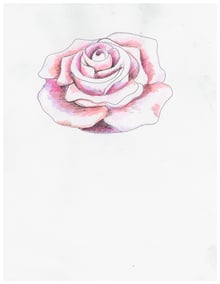 Billie Wade is a writer living in central Iowa. She is the creator and founder of Journaling to Heal, a program she designed to help people as they travel their journey of healing from emotional stress and trauma. Her background, education, and experience enhance her innate compassion and reverence for other human beings. She shares her strength and wisdom on www.journalingtoheal.com.
Billie Wade is a writer living in central Iowa. She is the creator and founder of Journaling to Heal, a program she designed to help people as they travel their journey of healing from emotional stress and trauma. Her background, education, and experience enhance her innate compassion and reverence for other human beings. She shares her strength and wisdom on www.journalingtoheal.com.
Contact her at billie@journalingtoheal.com
Journaling Power Revolution Series

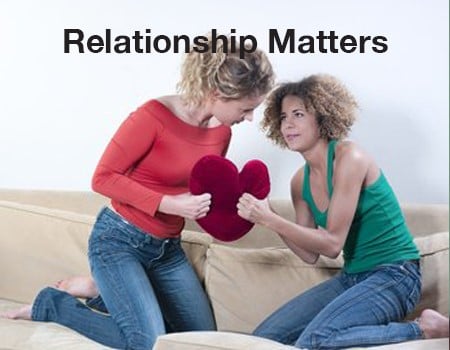
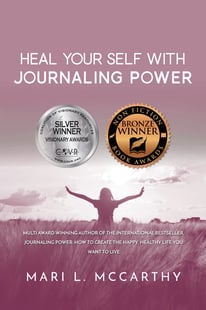
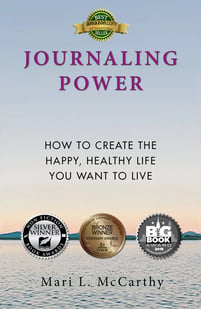
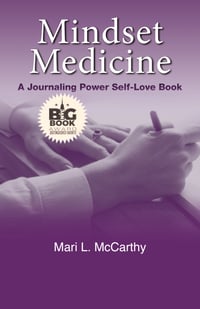
Leave Comment